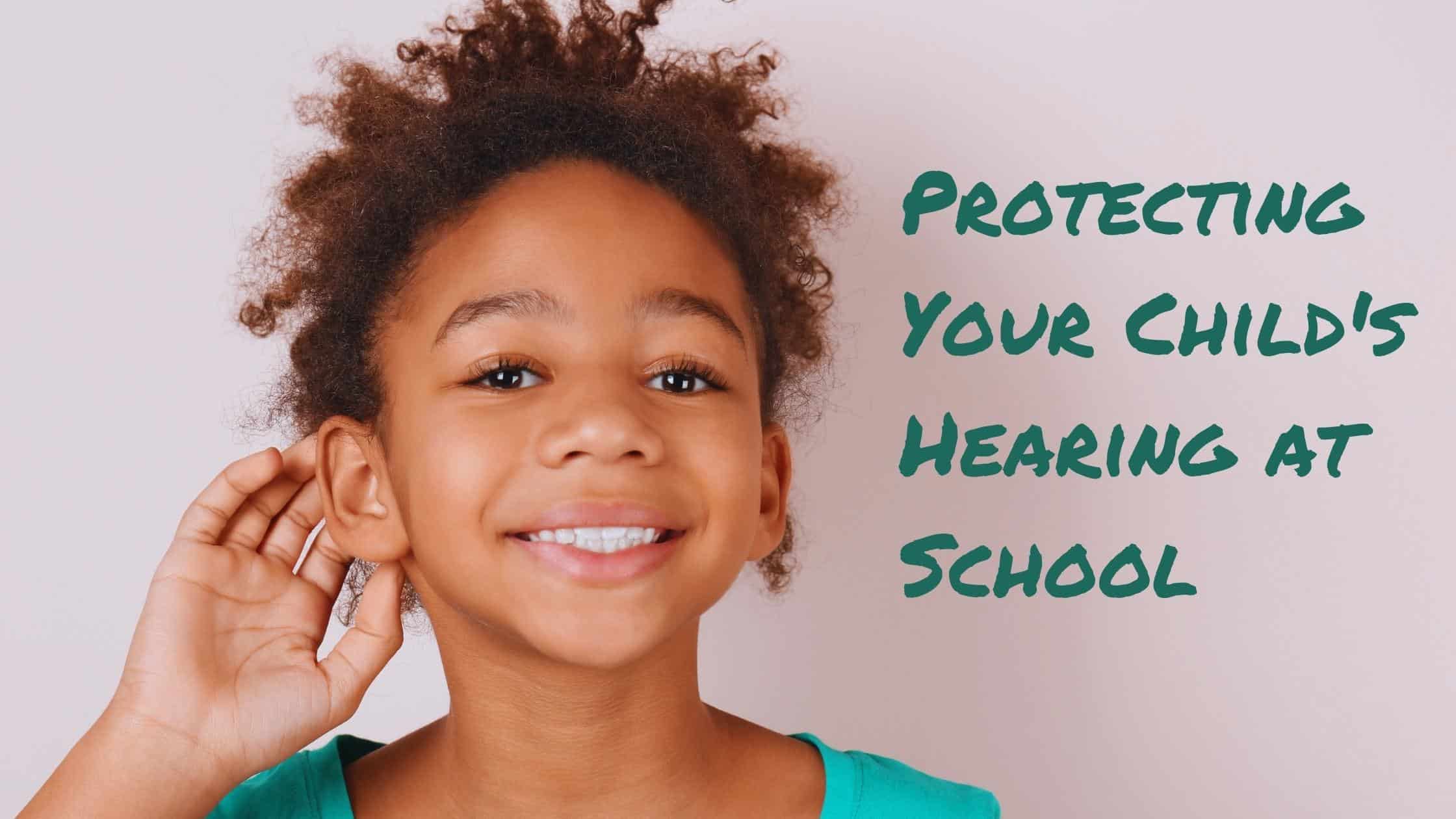
Back to school time is approaching! You may find yourself buying new school supplies, clothes, and making other arrangements for your kids to be back in school. While thinking about and making preparations for the upcoming school year, it is important to consider noise! Schools are noisy places filled with loud activities throughout the day. It is important to consider your kids’ hearing health and practice ways to protect their hearing!
Noise Induced Hearing Loss
One time or consistent exposure to loud noise is one of the most common causes of hearing loss. The World Health Organization estimates that 1.1 billion (globally) children and young adults are at an increased risk of developing hearing loss due to personal audio devices as well as being in loud environments. Schools tend to be loud environments: cafeterias, busy hallways, extracurricular activities etc. The noise levels in these settings can easily exceed what is generally considered safe for hearing.
Sound is measured in decibels and noise above 85 decibels is considered hazardous for hearing health. 85 decibels is the equivalent of busy city traffic or household appliances like a lawn mower. Kids are easily exposed to this level and higher levels of noise in school environments. According to the Occupational Health and Safety Administration (OHSA), people can safely be exposed to 85 decibels for eight hours without a significant risk to their hearing. But for every 3 decibel increase, exposure time should be cut in half:
- 85dB: 8 hours
- 88dB: 4 hours
- 91dB: 2 hours
- 94dB: 30min
This highlights that daily sounds we take in are potentially harmful for hearing. In addition to reducing exposure to loud noise, it is important to actively practice ways to protect hearing health.
Tips to Protect Your Child’s Hearing at School
While thinking about back to school supplies, be sure to consider hearing health! So while making a back-to-school checklist, we recommend adding the following:
- Discuss hearing health: it is useful to discuss hearing health with your kids. This can include doing fun interactive activities or watching animated videos about the ears and how hearing works. This expands their understanding on hearing and the importance of taking care of hearing health. Be sure to discuss hearing loss and risks that contribute to its development at any age.
- Protective wear: while buying school supplies, also invest in protective wear for the ears. This can include headphones, ear plugs, earmuffs etc. This type of gear serves as a protective barrier for the ears which reduces the amount and impact of loud noise that is absorbed.
- Raise awareness: if you are a part of any parenting groups or in meetings with teachers, you can discuss hearing health and raise awareness around noise-induced hearing loss. It is important to be aware of the noise levels your kids are exposed to throughout the day and discuss ways to protect young ears!
- Share strategies: there are several strategies you can share with others (as well as take the time to brainstorm with other parents and teachers) that protect hearing health. This can include downloading a sound meter app so that kids and teachers are aware of the sound volume they are being exposed to and can then adjust their exposure time accordingly. Also, taking listening breaks throughout the day is another simple strategy that is useful. The ears are constantly absorbing and processing incoming sound information so implementing breaks where kids are sitting in a quiet environment is a great way for the auditory system to rest and recuperate.
In addition to integrating these tips in your back to school planning, another really important strategy is to have your kids hearing tested regularly. It is critical to remember that people can develop hearing loss at any age and this includes children. With increased use of electronic devices, the risk of hearing loss has increased. This is because these devices can easily exceed 85 decibels. So having hearing tested annually is a great way to stay informed about your kids’ hearing health and any changes they may experience.
Early detection of any type or degree of impairment can facilitate productive intervention that prevents impairment from worsening. Prioritizing hearing health is a critical aspect of overall health and wellness! Here, we care about hearing health for adults of all ages. If you have experienced changes in your hearing, contact us today to schedule an appointment!
